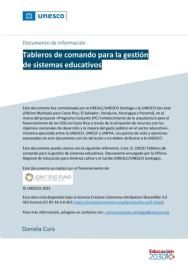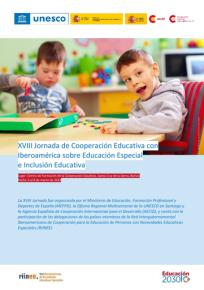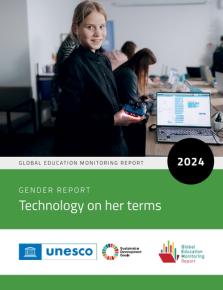Publication
Tableros de comando para la gestión de sistemas educativos
This document may be cited with the following reference: Cura, D. (2023) Tableros de comando para la gestión de sistemas educativos. Document commissioned by the Regional Bureau for Education in Latin America and the Caribbean (OREALC/UNESCO Santiago).

Over recent decades, Latin America and the Caribbean have evolved in their state policy approach, transitioning from a "minimal" state model to one aiming to build a "better" state, focused on poverty reduction, infrastructure expansion, and regulatory improvement. This shift, inspired by results-oriented public management models, has led to the implementation of advanced tools in administration, including strategic planning and more efficient management systems.
In the educational realm, despite inherent challenges like decentralization and process complexity, there have been significant advancements in the Information Systems for Educational Management (SIGED). This progress has enabled the emergence of pivotal tools like command dashboards, allowing for decision-making based on indicators. This document focuses on delving into these dashboards, providing conceptual clarity, best practices, and steps for their proper implementation in the educational sector.









